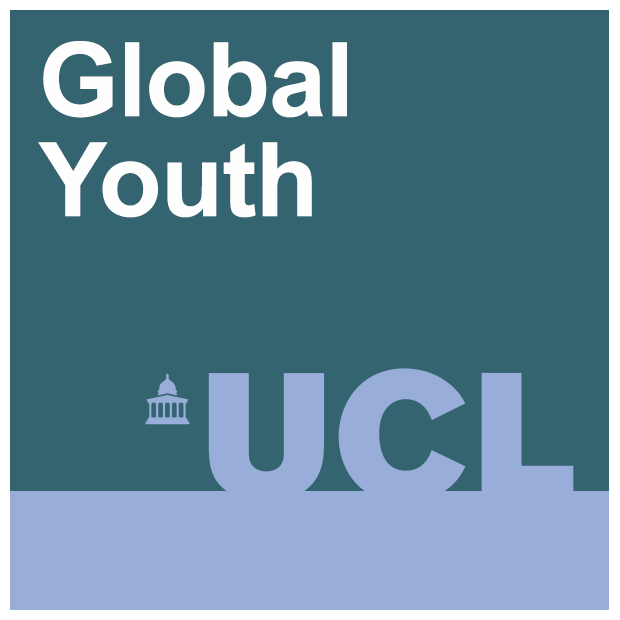Youth mobility webinar series week 1: India
By UCL Global Youth, on 9 April 2021
To view a recording of this webinar, visit our Youtube channel.
On Tuesday 4 May, 2021, 12 noon UK time. Register for this event on Eventbrite.
The first webinar of this series will focus on rural/urban youth mobility and international student mobility in India.
To start the session, Prof Supriya RoyChowdhury and Prof Carol Upadhya (NIAS, Bangalore, India) will present their findings on the migration of rural youth to the city to take up (often low-paid, insecure) jobs in the services sector, persuaded by government-funded, private sector-run skills training centres to ‘raise their aspirations’.
Next, Dr Peidong Yang (Nanyang Technological University, Singapore) shares insights into international student mobility, drawing on his ethnographic research on Indian youths pursuing English-medium medical degrees at a provincial university in China. He argues that ‘rationalistic’ explanations of Indian students’ educational mobility do not give the full picture: instead, he draws on the notions of compromise and complicity to explain behaviour and interactions.
Following the presentations, Dr Sazana Jayadeva (University of Cambridge) will draw out key themes and will invite questions for our speakers from webinar participants.
Presentation 1: Taking the Train Back Home: Migrant Service Workers in Bengaluru
Prof Supriya RoyChowdhury and Prof Carol Upadhya (both NIAS, Bangalore, India)
This presentation draws on a two-year study of youth from marginalised rural households who have been recruited by skill training and then placed in low-end service sector jobs in Bengaluru, India. We describe the processes of ‘mobilisation’ employed by NGOs to convince young people with 10th standard education and above to join short-term skill courses. While their expressed goal is to ‘raise the aspirations’ of youth from low-income families, once they enter training the effort is to ‘lower their expectations’ because the courses cannot equip them for the type of employment they desire – secure, well-paid government or public sector jobs. We highlight the tension between the aspirations of these rural youth who are channeled into the new service economy on the promise of social mobility, and the realities of these jobs and urban life – leading to peripatetic ‘career‘ paths in which they cycle frequently between the city, their hometowns or villages and other sites, in search of better employment or additional training or education. The instability of their life courses reflects the conditions of work in the new service economy in India, which is marked by fluidity and precarity and whose employers benefit from the availability of a large pool of potential workers from outside the city. The presentation reflects on how youth from low-income households try to forge strategies of social and spatial mobility in pursuit of their own aspirations against the background of the crisis of unemployment in India.
About the authors:
Supriya RoyChowdhury is currently Visiting Professor at the National Institute of Advanced Studies. Her book, City of Shadows: Slums and Informal Work in Bangalore, is forthcoming from Cambridge University Press.
Carol Upadhya is Professor at the National Institute of Advanced Studies, Bengaluru, where she heads the Urban & Mobility Studies Programme. She co-edited the volume Provincial Globalization in India: Transregional Mobilities and Development Politics (Routledge, 2018).
Presentation 2: Compromise and complicity as “extra-rational” logics of international student mobility: the case of Indian medical students in a provincial university in China
Dr Peidong Yang (Nanyang Technological University, Singapore)
Existing scholarship on international student mobility (ISM) often draws on Bourdieu to interpret such mobility as a strategy of capital accumulation and conversion used by relatively privileged individuals/families to reproduce their social position and advantage. This perspective stems from and also reinforces a rationalistic/calculative understanding of student mobility. In this talk, I focus on an empirical case that scarcely exhibits “typical” characteristics of student mobility: Indian youths of less affluent backgrounds pursuing English-medium medical degrees (MBBS) at a provincial university in China. After initially struggling to offer “rationalistic” explanations of the Indian students’ educational mobility endeavour, I turn to the notions of compromise and complicity to articulate the sociocultural logics characterizing various stakeholders’ behaviour and interactions in this case. In doing so, I make an attempt to take ISM analysis beyond “rationalistic” theorizations such as those inherent in the Bourdieusian perspective and the “push-pull” framework.
This talk will be largely based on the speaker’s publication: Yang, P. (2018). Compromise and complicity in international student mobility: the ethnographic case of Indian medical students at a Chinese university. Discourse: Studies in the Cultural Politics of Education. 39(5), 694-708. https://doi.org/10.1080/01596306.2018.1435600
About the author:
Peidong Yang is an Assistant Professor at the National Institute of Education, Nanyang Technological University, Singapore. A sociologist of education, Peidong’s main research interest is the intersection between education and migration/mobility. He has worked on a number projects, including Chinese student mobility to Singapore, Indian medical students in China, and immigrant teachers in Singapore. He is the author of International Mobility and Educational Desire: Chinese Foreign Talent Students in Singapore (Palgrave, 2016) and numerous journal articles. www.peidongyang.com
This series is hosted by the UCL Centre for Global Youth and co-organised by Dr Avril Keating (Director of the Centre), Dr Sazana Jayadeva (University of Cambridge) and Rachel Benchekroun (UCL-IOE). The series is funded by IOE International.
 Close
Close



